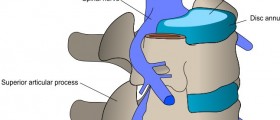
Wisdom tooth removal is a serious surgical procedure that requires carefully conducted post-operative treatment. Post-operative care will minimize the possible complications of infection and swelling.
After the surgery
The surgical area is covered with gauze and it should be kept in place for at least half an hour and then cautiously removed. It is important to avoid vigorous mouth rinsing or touching the affected area in order to prevent bleeding or a dislodging of the blood clot. Prescribed medication should be used as soon as the patient starts feeling discomfort. This will normally occur as soon as the local anesthetic stops working. The patient may place ice packs to the side of the face where surgery was performed and thus help reduce the swelling of the area.
Bleeding
It is normal to experience some bleeding after the surgery. Bleeding, oozing or redness in the saliva is a normal after-effect of surgical procedure. However, excessive bleeding may occur as a complication but it may be controlled by rinsing or wiping any previous blood clots from the mouth, then inserting a gauze pad over the region and biting tightly for half an hour. If the bleeding continues patients should bite on a moistened tea bag for thirty minutes. It is advisable to avoid any excitement, to sit upright and avoid any exercise. Failing to do so may cause further bleeding.
Swelling
Swelling is normally relative to the seriousness of the surgery involved. Most commonly, swelling affects the areas of mouth, cheeks, eyes, and sides of the face. Swelling normally occurs one day after the surgery and reaches its peak around 2-3 days after the operation. Immediate use of ice packs is highly suggested in order to remove or reduce swelling. Bags filled with ice should be applied to the affected areas. Patient should replace bags continuously. However, ice will be effective only for 36 hours. After that period it doesn’t show any benefit at all. No matter how unpleasant it seems to be, swelling is a normal reaction to surgery and patients should not be worried about it.
Pain
To reduce moderate pain patients may take one or two tablets of Tylenol or Extra Strength Tylenol every three to four hours, or two to four 200mg Ibuprofen tablets, every three to four hours. Pain killers will slow down patient reflexes so it wouldn’t be advisable to drive automobiles, work around machinery or use alcoholic drinks. If the pain persists after a couple of days, patients should warn their medical advisers.

















Your thoughts on this
Loading...